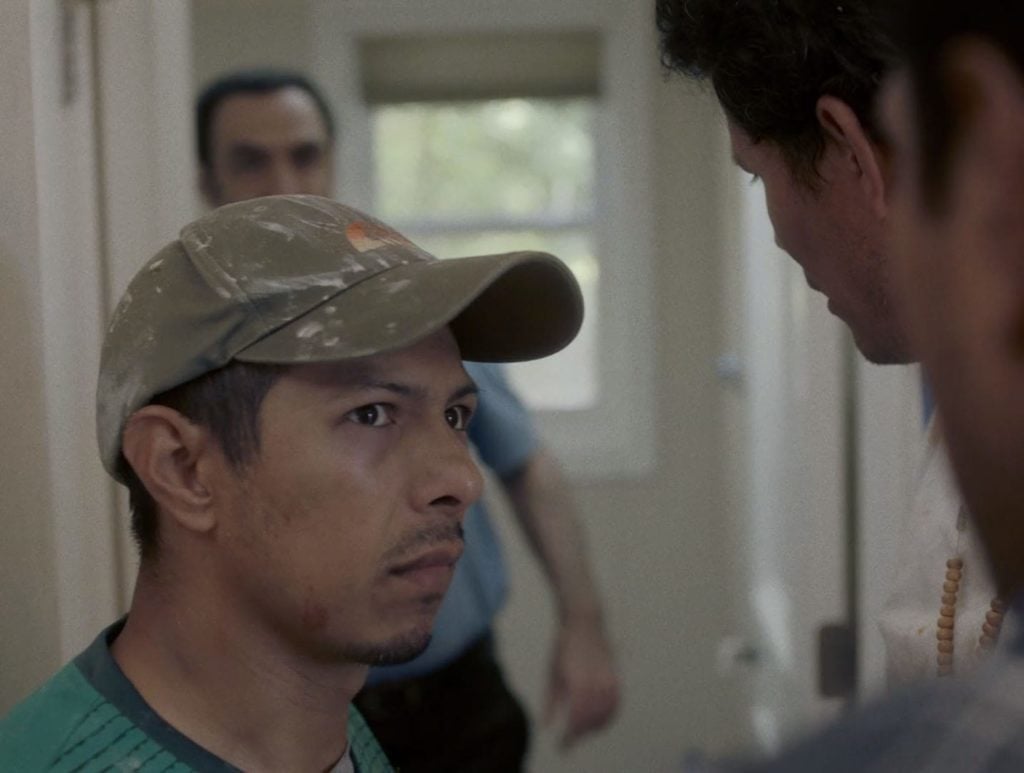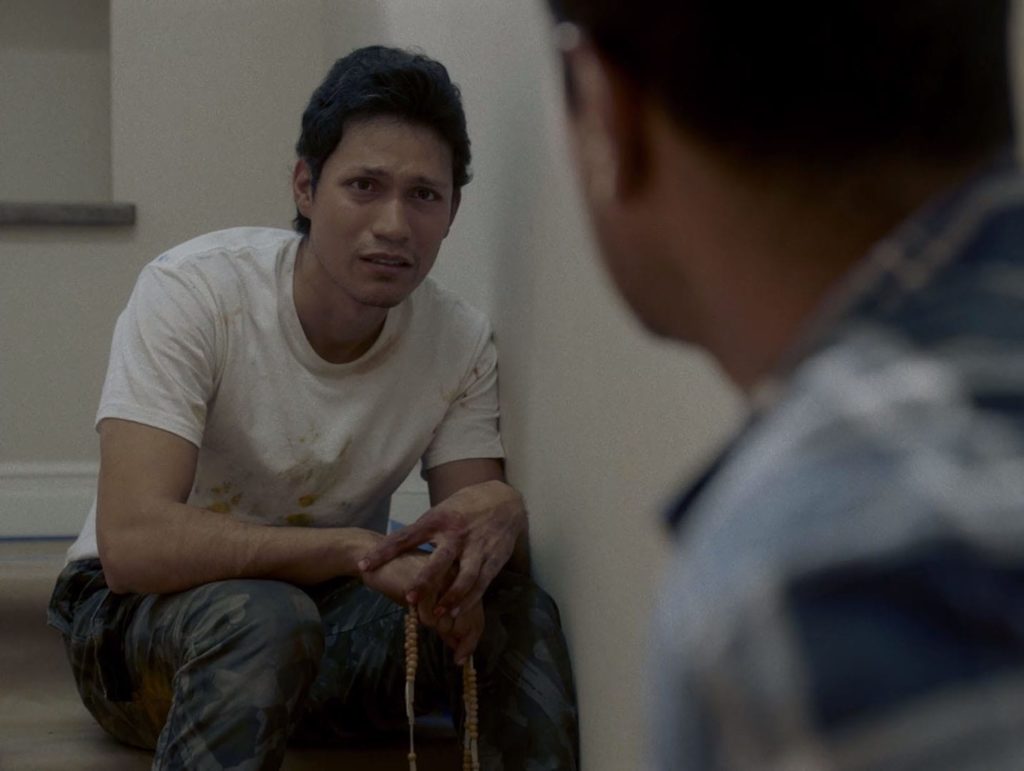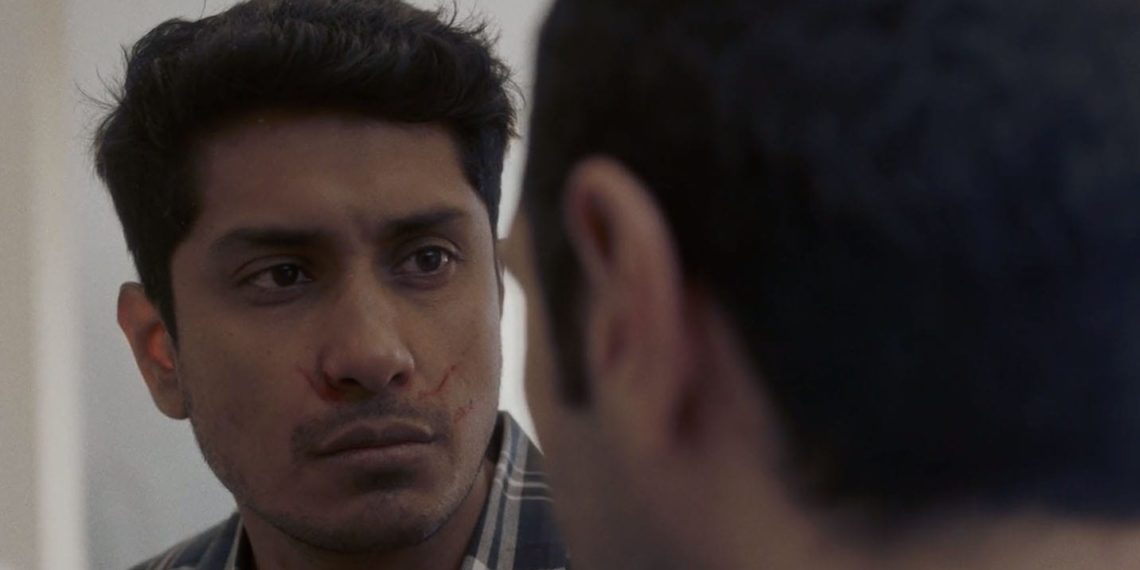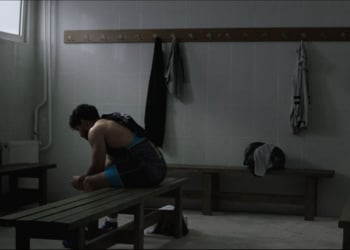What’s the price one pays for a better life? What’s the limit to pushing oneself for it? What’s the price of one’s life, anyway? Apparently very little, especially if you fall in the category of an illegal, migrant labourer. Director Julio O. Ramos’s Debris(Desecho) is developed from his own story, while co-written with Lucas Mireles. It’s a 14:11 grim short on the unaccounted lives of illegal, migrant labourers and their fight for dignity, acceptance and why, even survival in this case.
Enough has been said and spoken on the migrant community, mostly dramatized for enhanced effect, the material available usually touches upon homesickness, hard, physical labour, exploitation in the case of women labourers, but seldom has the reality been presented just as it is. And, Ramos does that – and it hits hard. There’s no overly done music or lensing to highlight the cause. No rhetoric or dramatic dialogues – just very raw conversations, normal and vulnerable as they are in reality.

We see Armando (Tenoch Huerta) supervise his three men Rafael, Manolo and Roberto (played convincingly by Jorge Diaz, Abraham Luna and Hansel Ramírez respectively) at a construction site. Even before the screen lights, we hear the sounds of the rubble falling at the said place. It unmistakably resembles the sound of something more sinister. Intentional perhaps, considering the nature of the film. But we see the men at work, one terribly sick and yet at it.
Director Ramos doesn’t waste his timeline, there’s no warning or preparation whatsoever to what awaits us in the coming scenes. As cinematographer Phil Klucsarits’s camera offers mostly handheld shots and oners, we see the men at work, their casual greeting and dismissal of one another speaking of the comfort, trust and solidarity they share despite the very obvious hierarchy maintained – is both authentic and comes across as easily believable.

There’s a good amount of thought put behind these characters. They’re regular, normal, ordinary human beings, working under seemingly ordinary conditions until one of them meets with an accidental fall that sets the narrative to a spin. Thereafter, the film takes a turn that is hard to watch and yet, look away from. Its swift, the pacing is gripping (deserving credit to Lucas Mireles’s editing here) and the acting by the ensemble cast – nearly perfect. When Armando decides to keep the accident at the worksite from his boss Tadevos (Karren Karagulian) all hell breaks loose – as friends turn to foes, superiority into submission and humanity into a capital enterprise, the film takes a grim turn.
Debris doesn’t offer any solace. There’s nothing left to comfort, no one left to console by the end of it. As Ramos knits his screenplay into the minuscule timeframe, we wonder at the horrors of human labour trafficking, the unreported crimes against them that go not only unnoticed but also dangerously gagged. When finally, Armando chooses to take a stand, we all know where it is going to lead and yet nothing, absolutely nothing could prepare us for the assault that Ramos throws our way with this very dark reality.
It’s the acting and the fast pace of the film that makes Debris so effective. Regardless of their screen time, the actors push the envelope, supporting one another into creating a space that is entirely believable. By the end of it, we are as suffocated and buried under the debris as are they. Debris is hard-hitting, effecting and moving beyond comprehension.
Highly recommended!
#ShortFilmReview: Debris: The price one pays for a better life. Share on X















